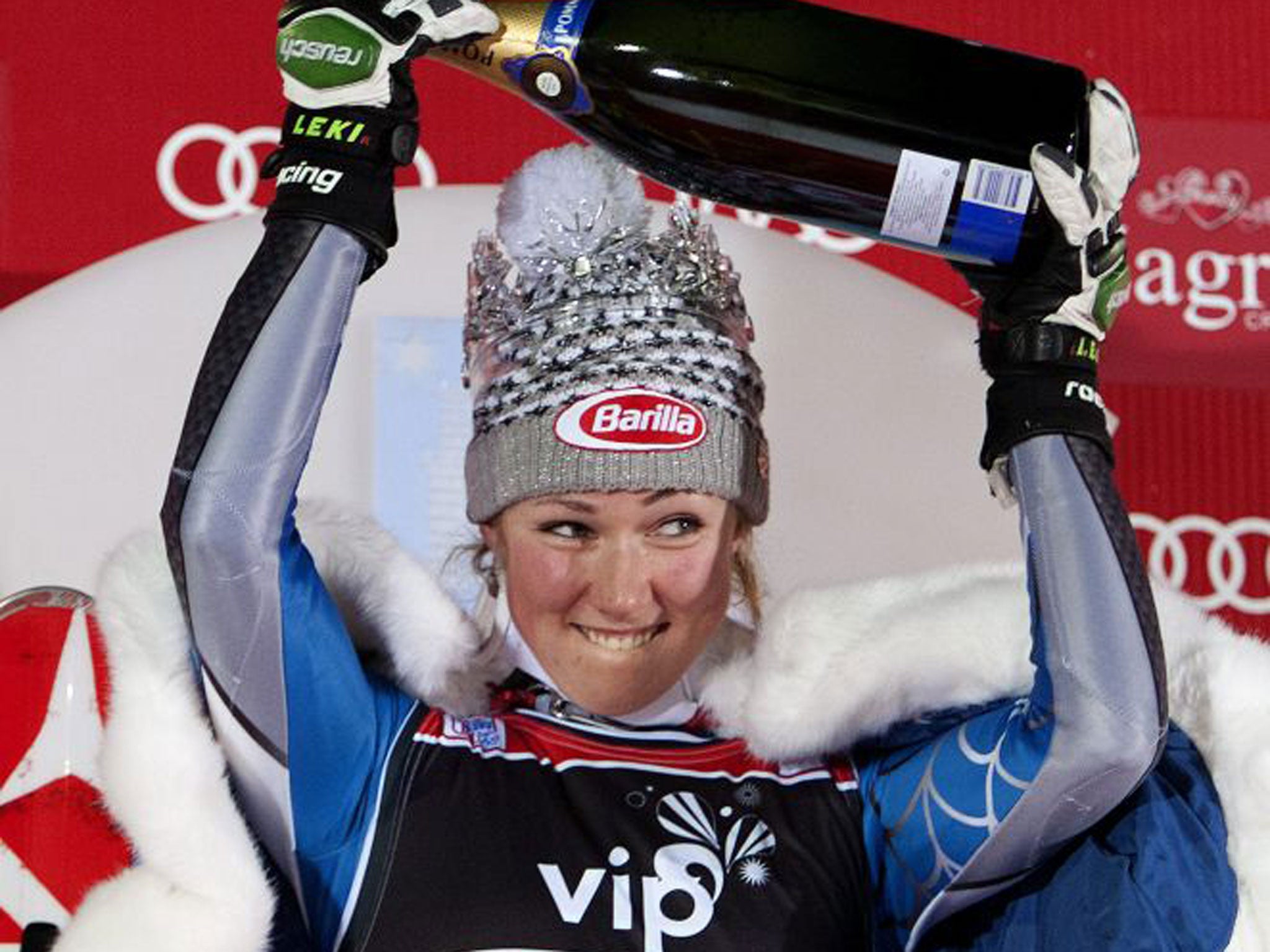The Last Word: This Mozart on skis has driven me to distraction

Snow only visits Britain so that we can have slush. For those who yearn for the Alpine winter, the Gulf Stream releases the island from its dull, temperate grip in pure mockery. These boreal interludes ultimately work more painfully on the soul than on frostbitten fingers, blistering it in disillusion. And this bittersweet, nostalgic quality to every British snowflake is why they must never change the theme music on Ski Sunday.
Some of us, admittedly, are so chronically in thrall to its environment that we follow skiing even on Eurosport – where the white mountain shrines are routinely defiled by one commentator, in particular, whose troglodyte deficiencies might be indulged more readily if he were peering at a monitor in some basement studio in London, but who instead soars to sadistic heights of provocation by vouchsafing that he has been out inspecting the piste during the morning.
As the only viewer in Britain who resents Eurosport for securing rights to the Australian Open, on the mildly depraved basis that it replaces downhill practice runs, not even a window on to the real thing will match the one that frames the snow at Wengen this weekend. The Lauberhorn is one of the downhill classics, a historic course that makes shattering demands on the skiers' resources, mental and physical.
One of the defining fascinations of sport is the margin between instinct and technique. The batsman, for instance, has a split second to trigger an attack or defence mechanism. He must then be able to rely absolutely on conditioned reflex. The moment he introduces deliberation to execution is the moment he hears the knell of falling bails. But at least his mistake is not going to put him in a wheelchair.
In a skier, that exquisite tension is represented by his precarious tilt upon the ice. Anyone who has caught an edge while idling down a red run has had an insight into the sort of disorientation that infects a skier jolted from his equilibrium. The abrupt imperative for technical correction rips you from a "zone" of clarity and composure, underpinned by instinctually repeated technique, into a blur of panic and peril. What, then, can it be like for these guys flinging themselves over the Hundschopf? Operating along some mystical margin of their being, they suddenly find themselves clattering into the abyss of their mortality.
Needless to say, nothing will narrow that fulcrum like the tension of competition. Great skiers have innate comfort with the edge. And that is what makes the emergence of Mikaela Shiffrin the biggest story of the Alpine winter. Because there is only so much technical instruction a 17-year-old girl can absorb. By all accounts, she is a model pupil. But she has something that cannot be learnt: as the stakes go up, she never blinks.
Shiffrin has yet to test her adolescent physique in the speed events. But on Tuesday the American won her third slalom of her first full season. Freakishly, she was precisely the same age – 17 years and 308 days – as the great Annemarie Moser-Pröll when she did the same four decades ago. Shiffrin's name has been known in ski circles for years already. She won one big international youth slalom by 11 seconds. (Seconds, not hundredths!) One of her earlier coaches pronounces her "a prodigy; she's Mozart".
At Flachau, Shiffrin picked up a purse of €58,500 (£49,900). "What is a 17-year-old supposed to do with that kind of money?" she asked. "I could give it to my dad to buy me an ice cream." Escorted on the tour by her mother, she is continuing her schoolwork remotely and will return to her dormitory at the end of the season. The still head, common to all elite skiers, is evidently a very level one.
And others should share that sense of perspective. Maria Höfl-Riesch, after all, was well placed to win at Flachau when straddling a gate on her second run. But Shiffrin is plainly here to stay. She complements her flair for optimal risk, in a race, with a temperate nature. She has been raised to maintain an even keel, and seems unlikely to be seduced by her extravagant gifts into any loss of bearings.
Shiffrin has been "the new Lindsey Vonn" for a long time already. Well, her glamorous compatriot sat out the slalom at Flachau, short of training after dropping off the circuit with intestinal illness. In the past, Vonn has also suffered from depression. As she gets older, Shiffrin may also have to deal with challenges as precipitous as any piste, in relationships or injury or whatever. She should be allowed to become her own woman.
She will do very well remotely to match Vonn, sometimes so dominant she has sought the right to ski against men; or Tina Maze, whose Super-G success last week made her only the sixth woman to win in all five World Cup disciplines. The breathtaking Anna Fenninger is only 23. If Shiffrin can outshine all these, I may have to stop looking at the scenery altogether.
Subscribe to Independent Premium to bookmark this article
Want to bookmark your favourite articles and stories to read or reference later? Start your Independent Premium subscription today.

Join our commenting forum
Join thought-provoking conversations, follow other Independent readers and see their replies